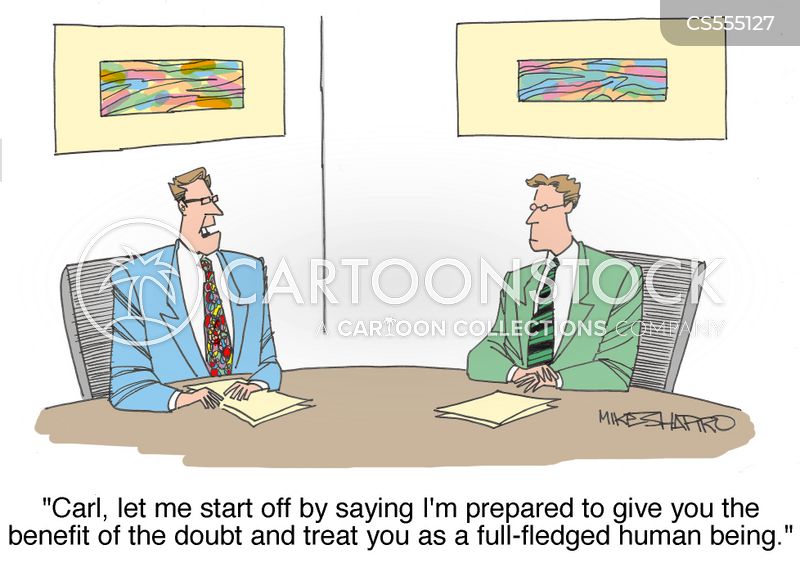What does "benefit of the doubt" mean? How to use it?
The benefit of the doubt is a principle that allows for the possibility that someone or something may be innocent or truthful, even if there is not enough evidence to prove it. It is often used in situations where there is uncertainty or doubt about someone's actions or intentions.
Here is a more detailed answer:
The benefit of the doubt refers to the idea that, in certain situations, it is fair and appropriate to give someone the benefit of the doubt, even if there is not enough evidence to fully prove their innocence or truthfulness. This means that, when there is uncertainty or doubt about someone's actions or intentions, we should consider the possibility that they are innocent or honest, rather than automatically assuming that they are guilty or dishonest.
The principle of the benefit of the doubt is often used in legal and judicial contexts, where it serves as a way to protect individuals from being unfairly accused or convicted of a crime. It is also used in other areas of life, such as in personal relationships, where it can be applied as a way to give someone the benefit of the doubt when there is a disagreement or misunderstanding.
Here are usage examples to help you better understand this expression:
In a criminal trial, the jury is instructed to give the defendant the benefit of the doubt if there is any reasonable doubt about their guilt.
When my friend was late to meet me, I gave them the benefit of the doubt and assumed they had a good reason, rather than immediately thinking they were trying to stand me up.
The boss decided to give the employee the benefit of the doubt and believe that they had not intentionally made the mistake, even though there was no concrete evidence to support this.
Here are a few multiple choice questions to help you practice using this expression:
Which of the following is NOT an example of when the benefit of the doubt may be appropriate?
a) In a criminal trial, when there is not enough evidence to prove the defendant's guilt
b) In a personal relationship, when there is a disagreement or misunderstanding
c) When someone intentionally makes a mistake
d) When there is uncertainty or doubt about someone's actions or intentions
Answer: c) When someone intentionally makes a mistake
Which of the following is NOT a characteristic of the benefit of the doubt?
a) It allows for the possibility that someone or something may be innocent or truthful
b) It is used to protect individuals from being unfairly accused or convicted of a crime
c) It is applied automatically in all situations
d) It is based on concrete evidence
Answer: d) It is based on concrete evidence
In which of the following contexts is the principle of the benefit of the doubt NOT typically used?
a) Legal and judicial contexts
b) Personal relationships
c) Business decisions
d) Sports competitions
Answer: d) Sports competitions
The benefit of the doubt is a principle that:
a) Requires people to automatically assume that others are guilty or dishonest
b) Allows for the possibility that someone or something may be innocent or truthful, even if there is not enough evidence to prove it c) Is only applicable in certain situations
d) Is based on concrete evidence
Answer: b) Allows for the possibility that someone or something may be innocent or truthful, even if there is not enough evidence to prove it
Conclusion:
The benefit of the doubt is a principle that allows for the possibility that someone or something may be innocent or truthful, even if there is not enough evidence to fully prove it. It is often used in situations where there is uncertainty or doubt about someone's actions or intentions, and it serves as a way to protect individuals


What is benefit of the doubt?
Meaning of benefit of the doubt:
Giving something or someone the benefit of the doubt means to trust or believe in them/ believe it as correct until proven that it is not.
When is this phrase used?
This phrase is used when you're unsure if something is to be trusted or believed, but you decide to believe it anyway.
I'll give you the benefit of the doubt (idiom)
What does this mean?
This means, "I will assume that what you are saying is true, or that I will assume you have good motives for doing something."
"I heard you were going to quit this job without notice...
Even though didn't come to me directly, I will give you the benefit of the doubt."
What does "the benefit of the doubt mean"?
the benefit of the doubt
noun phrase
: the state of accepting something/someone as honest or deserving of trust even though there are doubts.
He might be lying, but we have to give him the benefit of the doubt and accept what he says for now.
Noun phrase
Used to express that in spite of the presence of doubt about someone, we accept him/her.
What does benefit of the doubt mean?
Benefit of the doubt.
Here is the meaning and explanation for benefit of the doubt.
It means that you believe something or in someone. Even though you might be skeptical about it or the person.
After shopping I returned to my car and saw a few long scratches alongside the passenger door! Standing nearby was a woman on his phone, so I asked her if she saw what happened.
Explained short and sweet.
It basically means that you have to trust something or someone. Basically you are giving them a second chance without any proof.

The benefit of the doubt - what does that mean?
When there is doubt about something (it has not been proven wrong), the benefit is yours
Even if you think it is not the truth, you will treat it as the truth until proven wrong. "I am a better chess player than you" Treat him as the best until you have proof that nr 2 is the best.
You are right until proven wrong - I will give you the benefit of the doubt
What does 'Benefit of the doubt' mean?
Benefit of the doubt - The meaning... 💭
To give somebody the 'benefit of the doubt' means to excuse them and 'let them off'.
For example.. 💭
Little Johnny forgot his homework, but this was the first time ever, he normally hands it in every week on time, so the teacher says "I will give you the benefit of the doubt this time, but please do not forget again."
Another example could be...
You was late for work because your bus broke down, your boss said he will give you the benefit of the doubt this time because the circumstances were not your fault.
'Benefit of the doubt' can be used in many scenarios, particularly those of a first time fault or error, or for those times when your boss, teacher, parents or carers are feeling generous and happy at that time.
English Phrases
This phrase can be used when deciding if a person has done something wrong or illegal. If the person seems innocent, we may give them the benefit of the doubt.
For example:
He seems honest, let's give him the benefit of the doubt.
I'm glad I gave you the benefit of the doubt, you didn't lie to me.
Conclusion
Use this phrase when you are fairly certain the person is innocent, or has not done anything wrong.
the benefit of the doubt
noun phrase
: the state of accepting something/someone as honest or deserving of trust even though there are doubtsHe might be lying, but we have to give him the benefit of the doubt and accept what he says for now.

Dictionary Entries Near the benefit of the doubt
the benefit of the doubt









